It is quite a long way from where the many signs to the waterfall. "Skradinski buk" it screams here and screams there from the walls, barbecue, restaurant and kiosk, boat trips and paddle trips are offered. Full service at the longest and narrowest waterfall on the Croatian river Krka. "Skradinski Buk" means "Cascades of Skradin" and they are nothing less than one of Croatia's most famous natural wonders. But we are not there yet: the path winds along the riverbank for kilometers, steeply descending on the right, no less steeply ascending the mountain on the left.
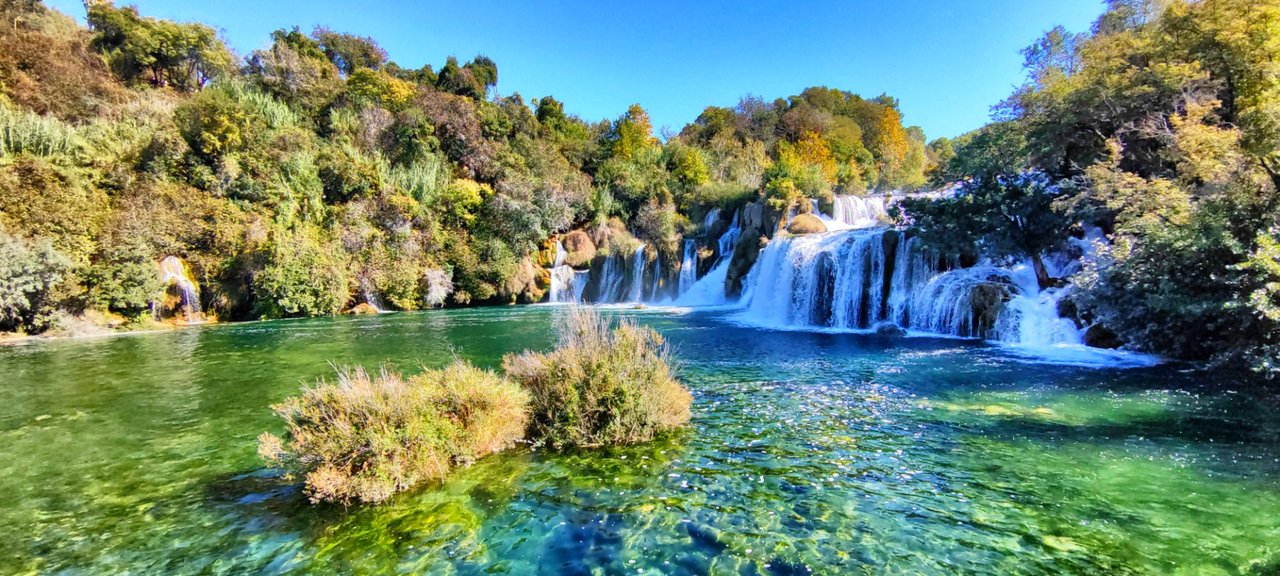 Looks like a true paradise
Looks like a true paradise
The path is dusty, the trees are green, the water of the Krka winks back in the same color. A large boat passes by, taking tourists to the falls who want to save themselves the walk. They are missing out. Because the landscape here is really worth seeing. With deep gorges, small bridges and resting places in the shade. Finally, after an hour and a half, people show up again. The waterfalls attract hundreds of thousands of people every year - of course, because it's a real natural wonder that is rarely found.
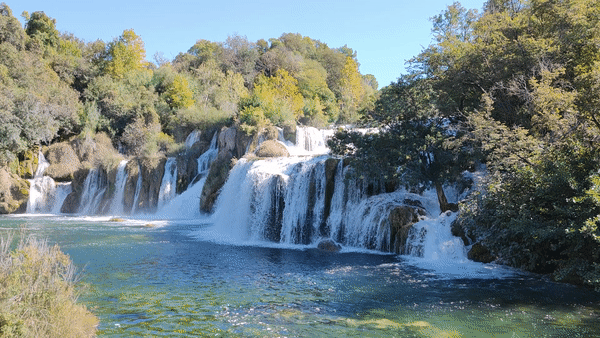 Water is moving 24/7/365
Water is moving 24/7/365
Bacteria build the barricades
This is because these waterfalls were created by travertine barriers, naturally formed islands and lakes built by bacteria over millions of years. The combined waters of the Krka and Cikola rivers flow over the famous 17 steps at Skradinski buk, spread over the 800 meter length. The width of the individual cascades ranges from 200 to 400 meters. The water plunges 45 meters into the depths. Several renovated water mills, old rolling mills and washing columns, which have harnessed the power of the river for centuries, can be admired. The famous Nikola Tesla once worked here, a sign reveals.
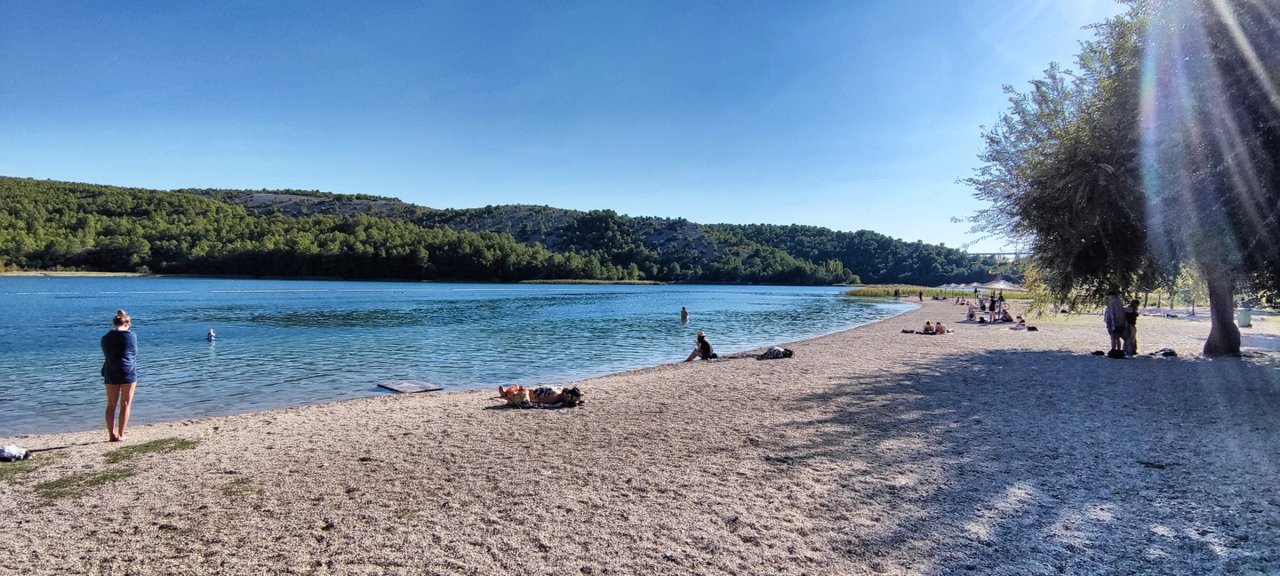 The beach
The beach
The pretty area directly around the big waterfall is only a small corner of the large Krka National Park. It includes most of the river course and shore region of the eponymous Krka River, from the historical town of Knin, not far from its source, to Skradin. In Skradin the course of the river Krka turns into a long and deep sea bay.
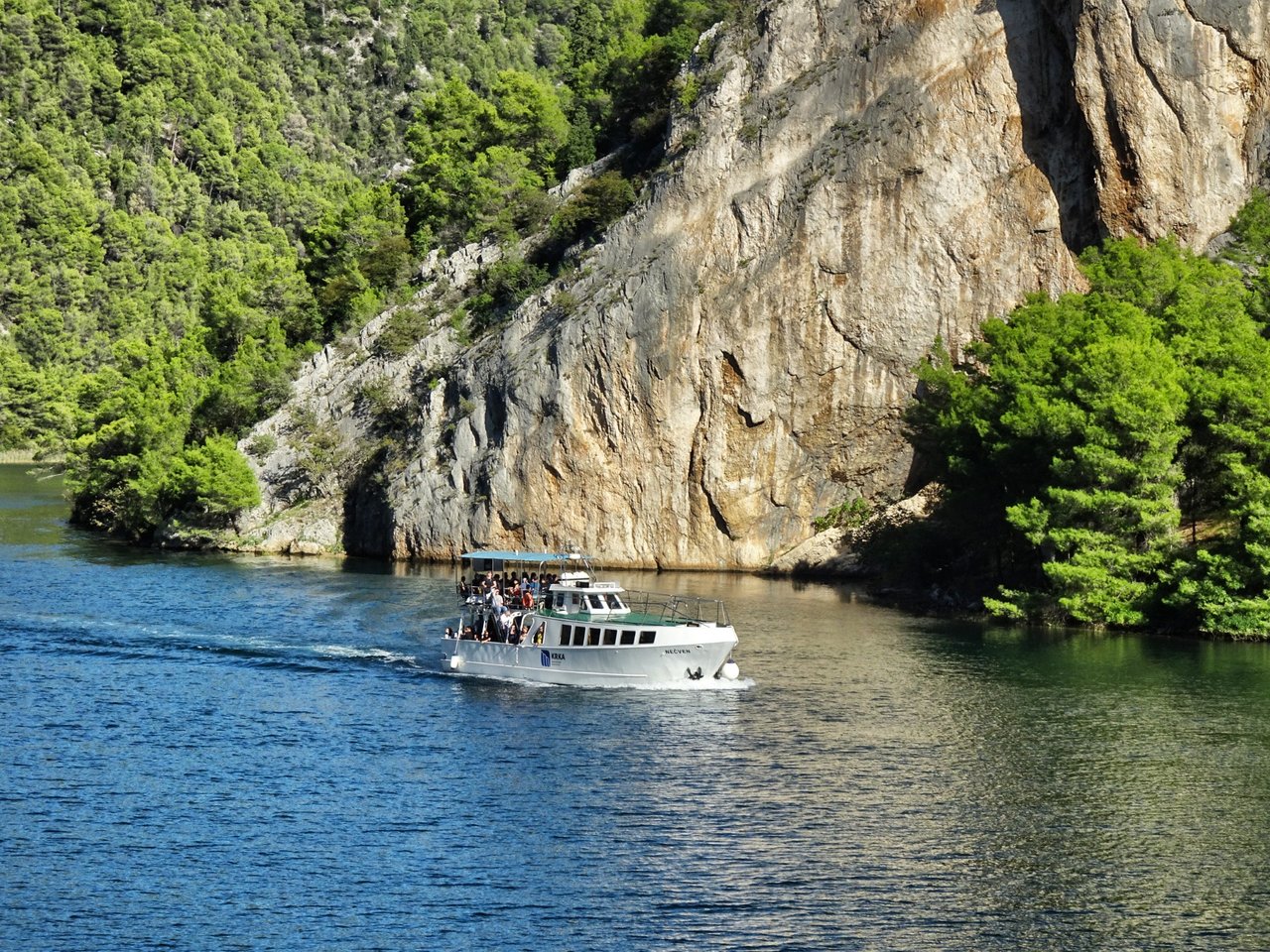 The short way to the fall
The short way to the fall
White beach at the river
Here, in the middle of the inland, there is even a real sea beach with white sand. No wonder that the Krka National Park is one of the most popular destinations for tourists in Croatia. The landscape left and right of the river, is multifaceted and has much to offer. Along the Krka and the lakes you can find many old fortress ruins, mills and some monasteries. Even deer can be seen in quiet moments. But also charred tree stumps where a forest fire has raged.
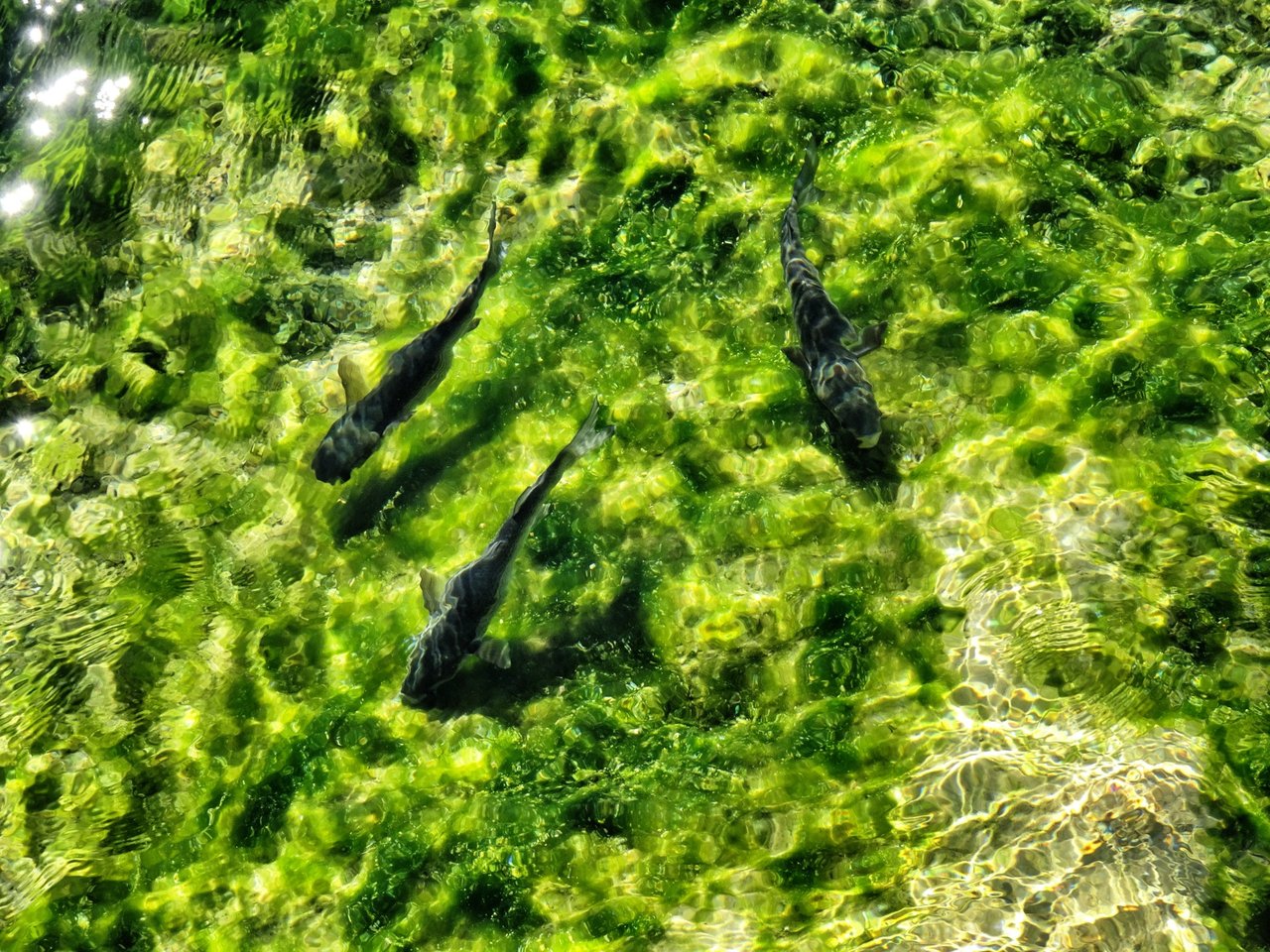 Fish in very clear water
Fish in very clear water
But above all, there are the seven waterfalls, where the river plunges several times during its course. Their chief is Skradinski Buk, a picturesque photo motif. It is not for nothing that Sradinski Buk can be found on numerous postcards and in advertising brochures for Croatia. Fortunately, as a photographer, you now also have your back to the numerous excursion boats that puff up the river, drop off their passengers and return an hour later. The national park ticket is included in the entrance fee. It doesn't get more convenient than this.
 The bridge is the heart of the falls
The bridge is the heart of the falls
The heart on a bridge
The Krka National Park was established in 1955. As early as 1948, the area of the park was classified as a rare natural asset and significant area. Between 1985 and 1997 the area of the national park was extended to a total of 109 square kilometres. The heart of the whole natural wonder beats on a bridge built across the first basin. From here, the mighty waterfall offers a natural spectacle not often found. Over a width of well over 100 meters, the water of the Krka River falls into the depths here with a thunderous roar.
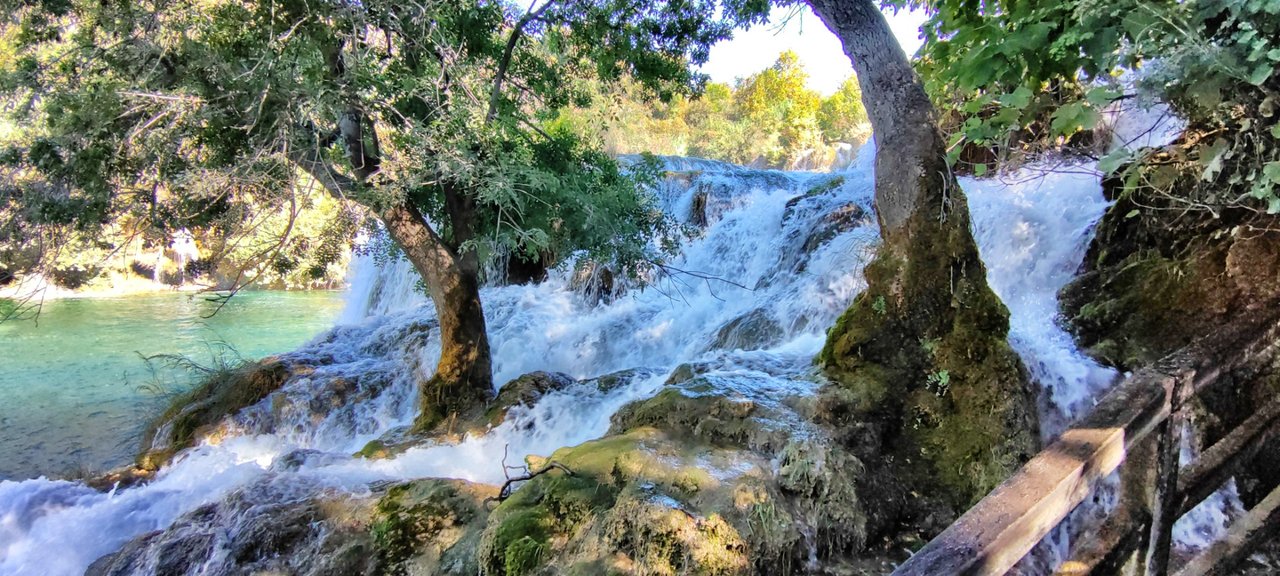 You see the water streaming through the trees
You see the water streaming through the trees
The Sradinski Buk waterfall is one of the few large waterfalls in a national park where swimming is allowed. Various small islands and lakes around the waterfall make the area a nice swimming spot in summer. Even directly under the waterfall there is a large pool where swimming is possible.
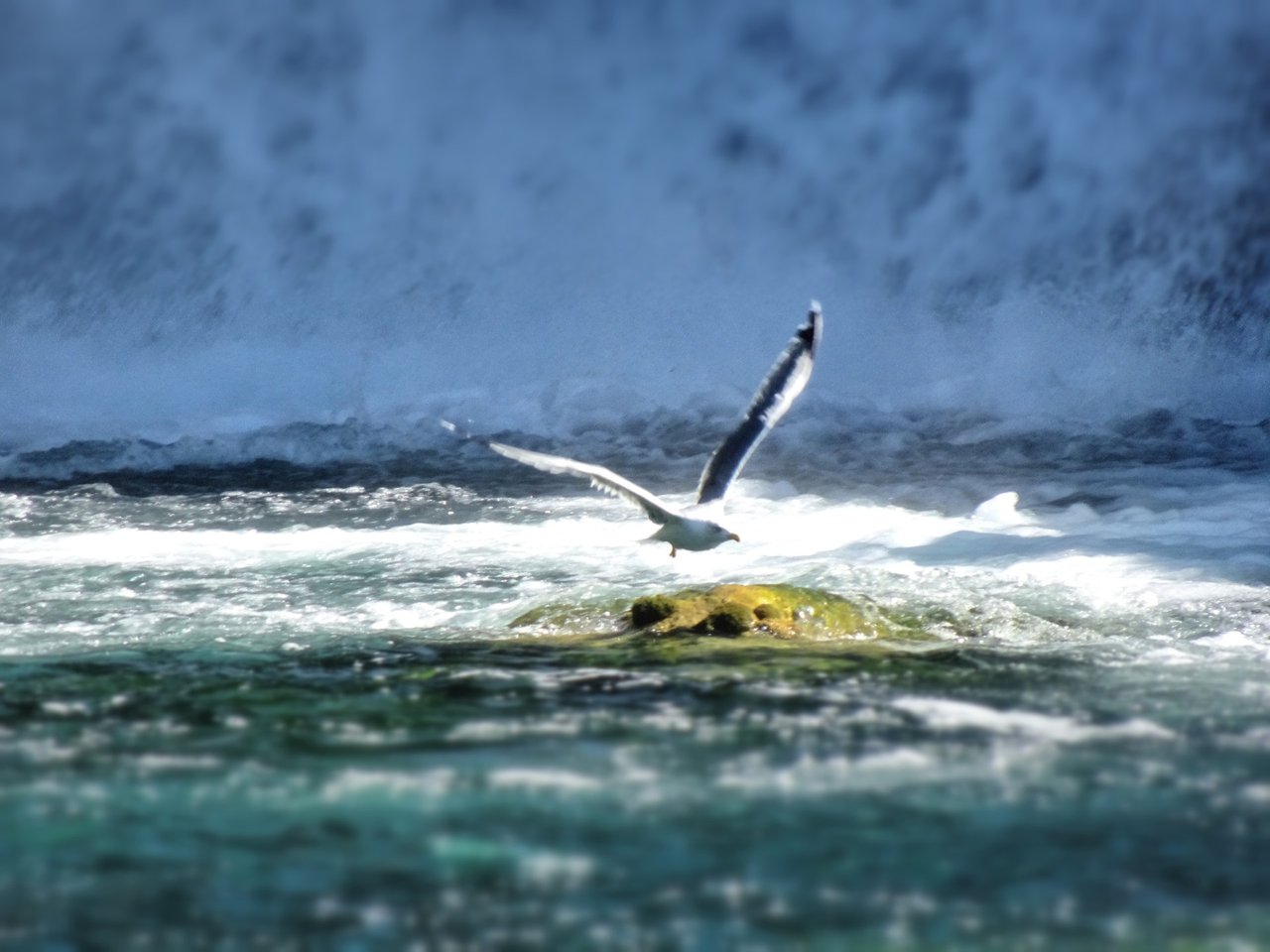 A gull is landing on one of the small islands
A gull is landing on one of the small islands
You then swim in the emerald green shimmering water, in the midst of fish that do not let themselves be disturbed. The rock formations in the Krka National Park in Croatia are also called Rauwacken or cellular limestone. This is a very holey limestone. The shores around are incredibly green and wildly overgrown. One does not know whether the green is reflected in the water or whether the plants have borrowed their color from the water. Surprisingly, the higher canyon landscape is very dry.
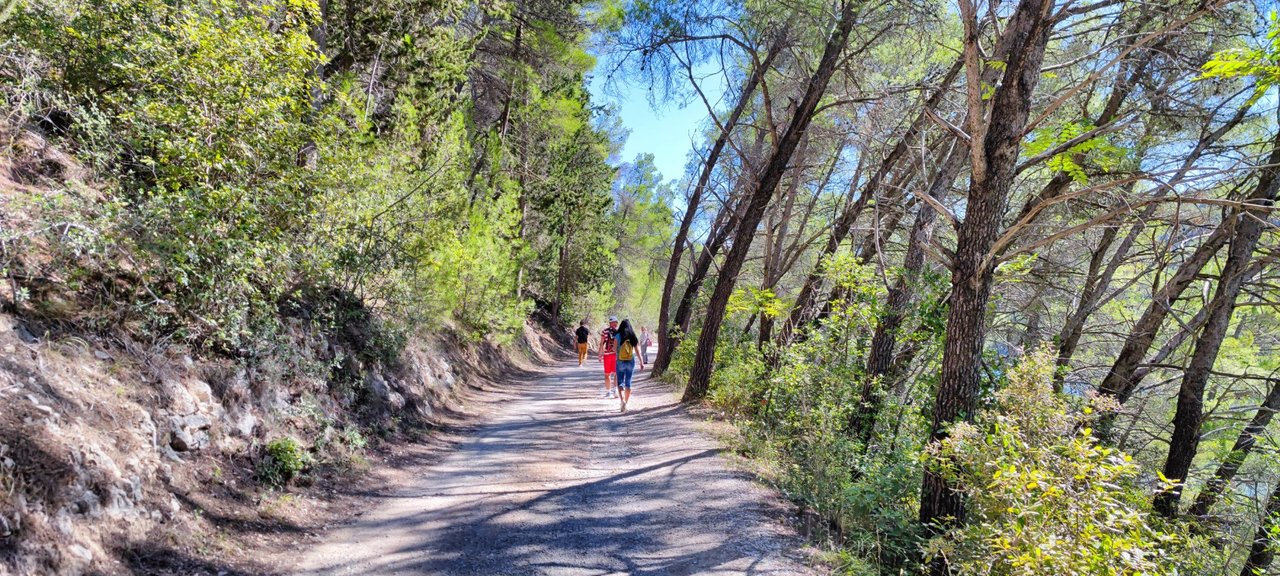 You have to walk nearly 5 kilometres
You have to walk nearly 5 kilometres
The place of history
Of all places, human history was written here, because next to the waterfall, Europe's first hydroelectric power plant was built on Aug 21, 1895.
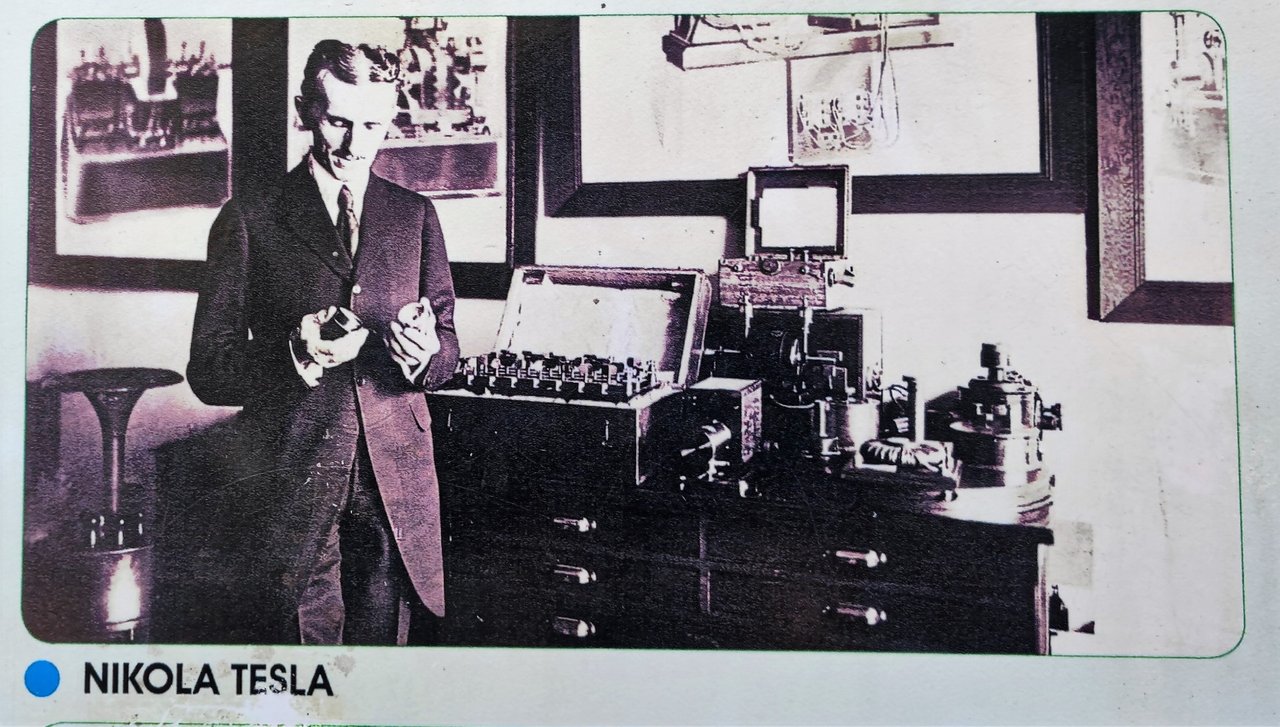 He war here too - the Elon Musk of his times
He war here too - the Elon Musk of his times
The hydroelectric power plant was revolutionary at that time, because it supplied the area around Sibenik with electricity before most big cities had such a thing.
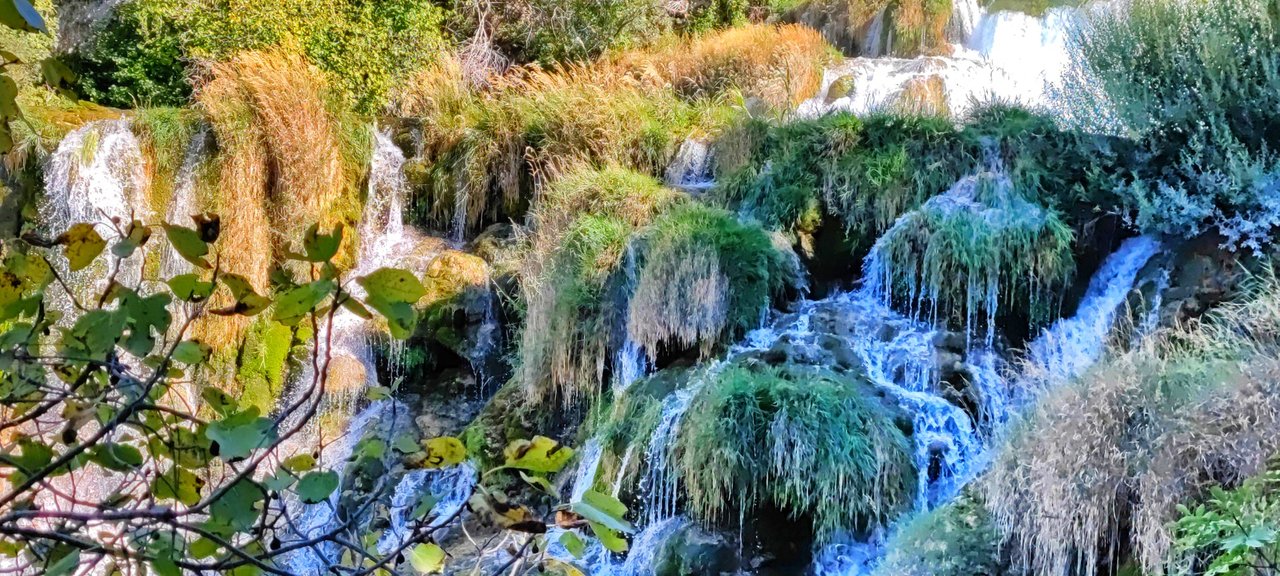 A view from the right side of the river
A view from the right side of the river
It was the second dam of its kind in the world. The first was the one at the Niagara River based on Tesla's design - the one here on the Krka came just two days later. But the city of Buffalo in the USA didn't get its first electricity until early 1896, when the power lines were ready. By then, the town of Sibnik was already electric. Today, the old power station is a protected monument as a reminder of the industrial architecture of that time.
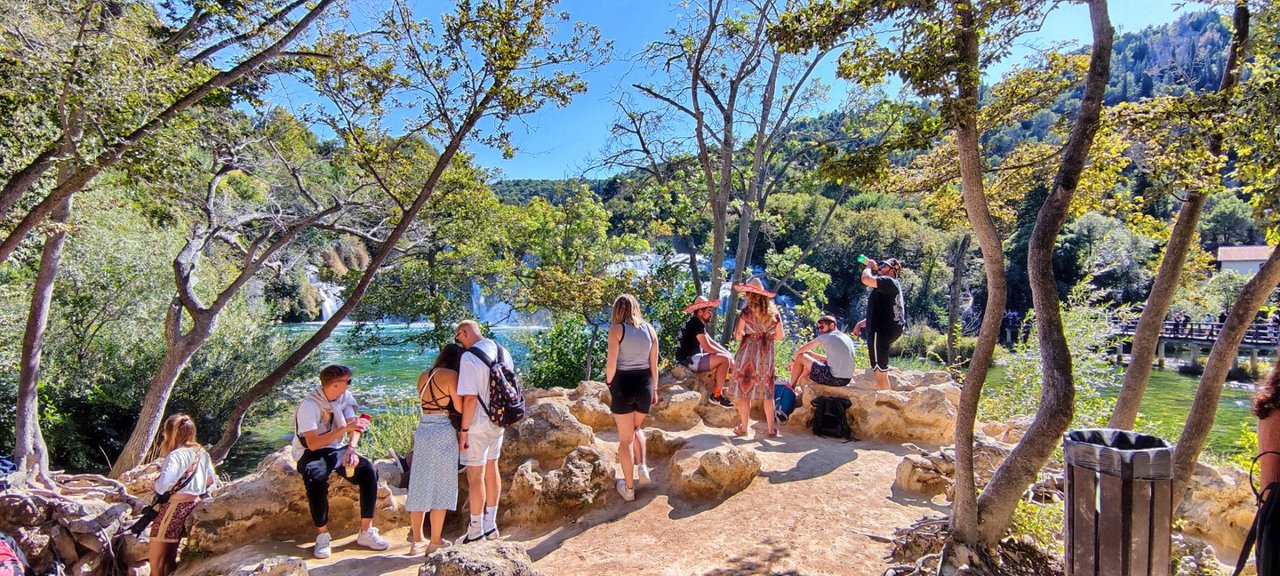 Thousands of people are coming to the falls every day
Thousands of people are coming to the falls every day
However, Skradinski buk is known to German tourists in another way. Some scenes from the Winnetou movies of the 1960s were filmed on the spot. The indian chief we will meet the next day!
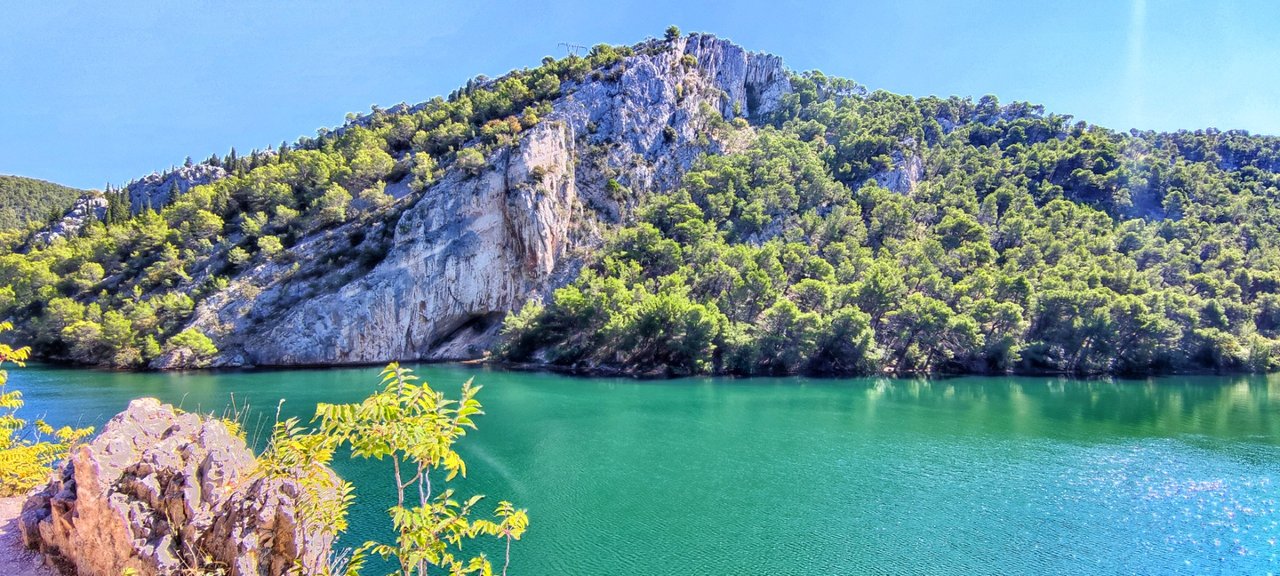 Rocks and trees and green water...
Rocks and trees and green water...
Thank you for reading and if you like my work please follow me on Hive, Travelfeed or Steem or visit my homepage koenau.de
A few more pictures:
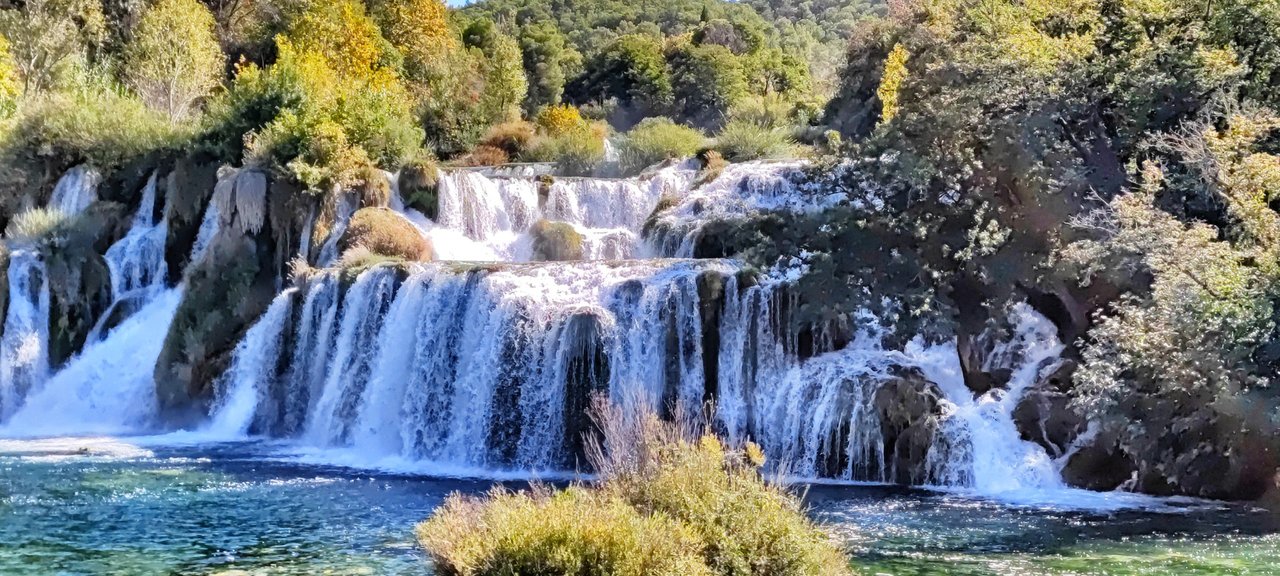 Nearer, my god to you
Nearer, my god to you
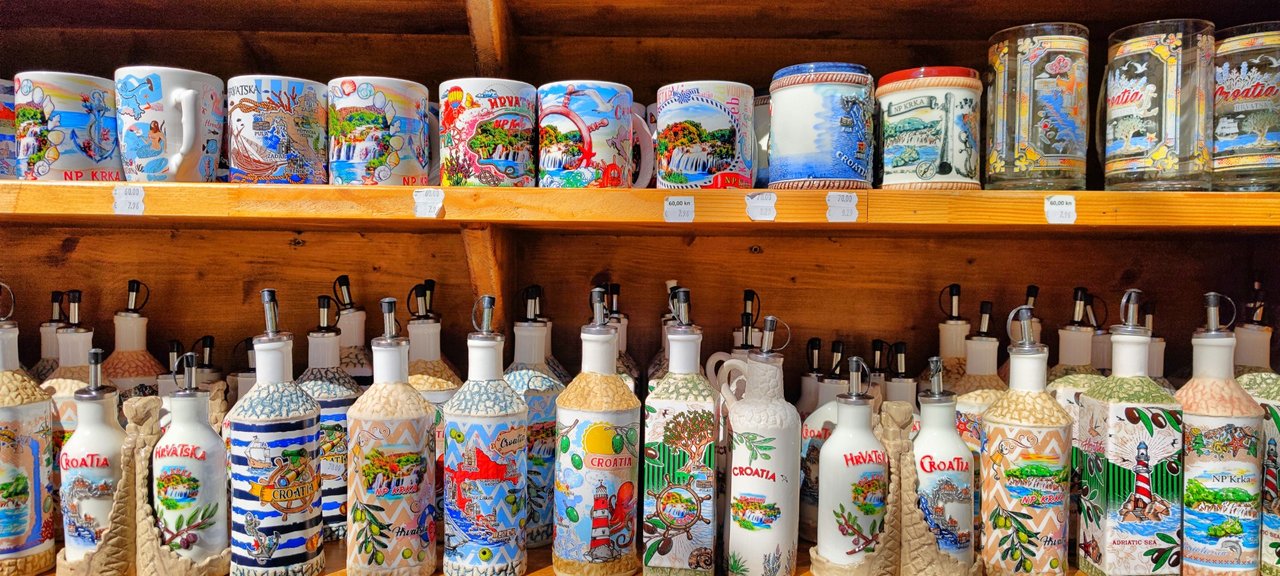 They have a shop, of course
They have a shop, of course
 Everlasting water flow
Everlasting water flow
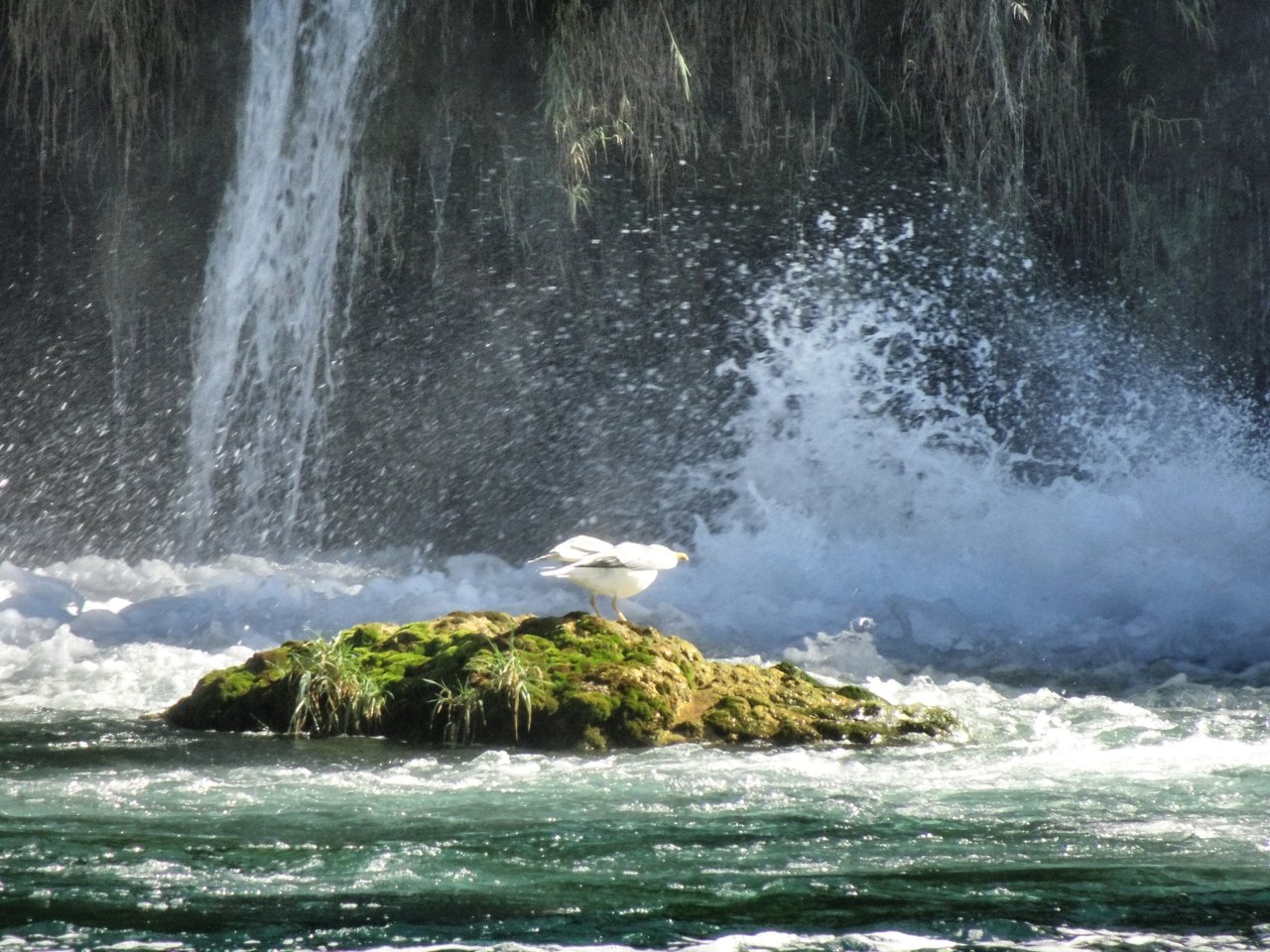 The gull has landed
The gull has landed
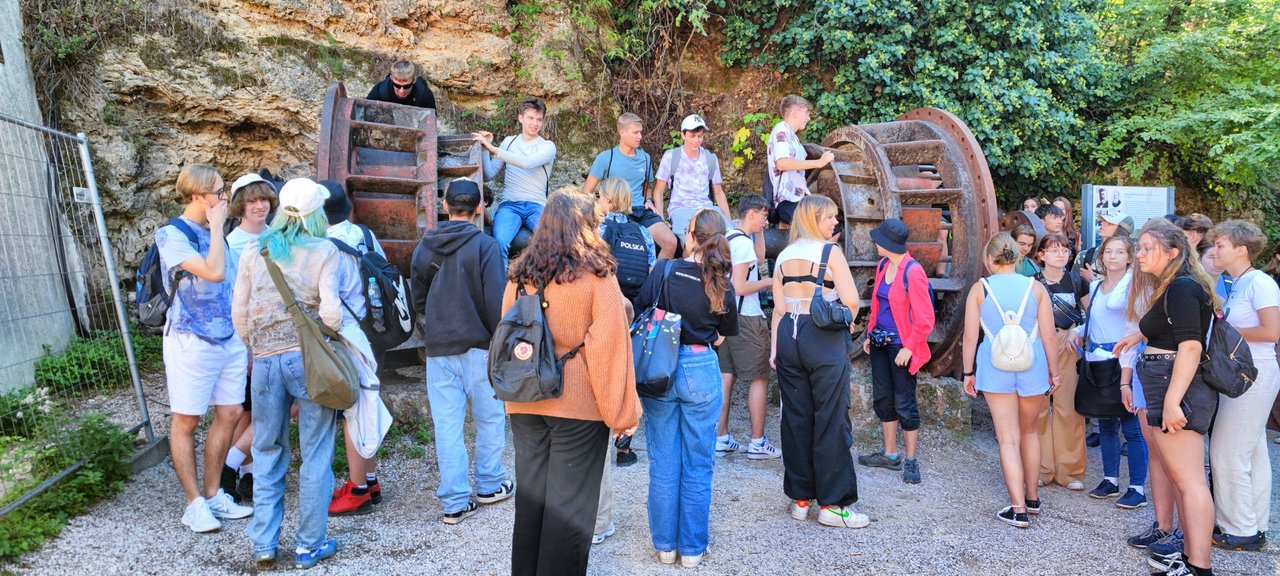 The the generator in the back.
The the generator in the back.
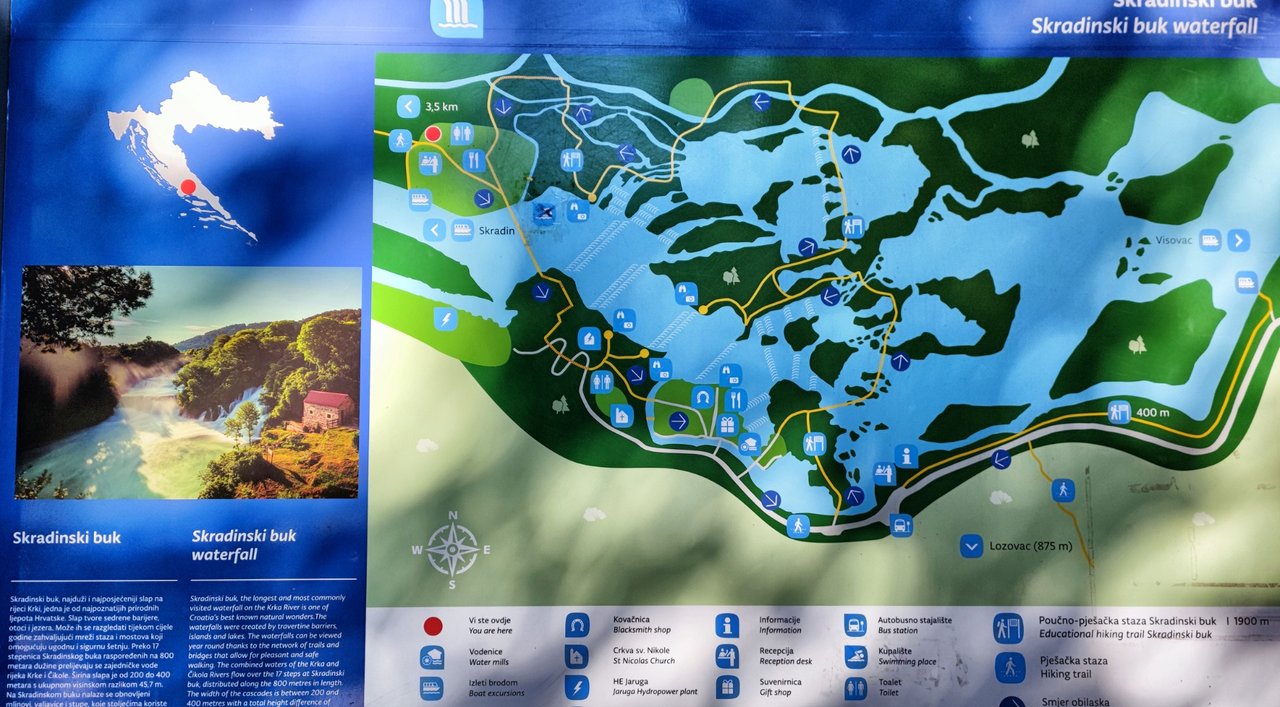 The map of the area
The map of the area

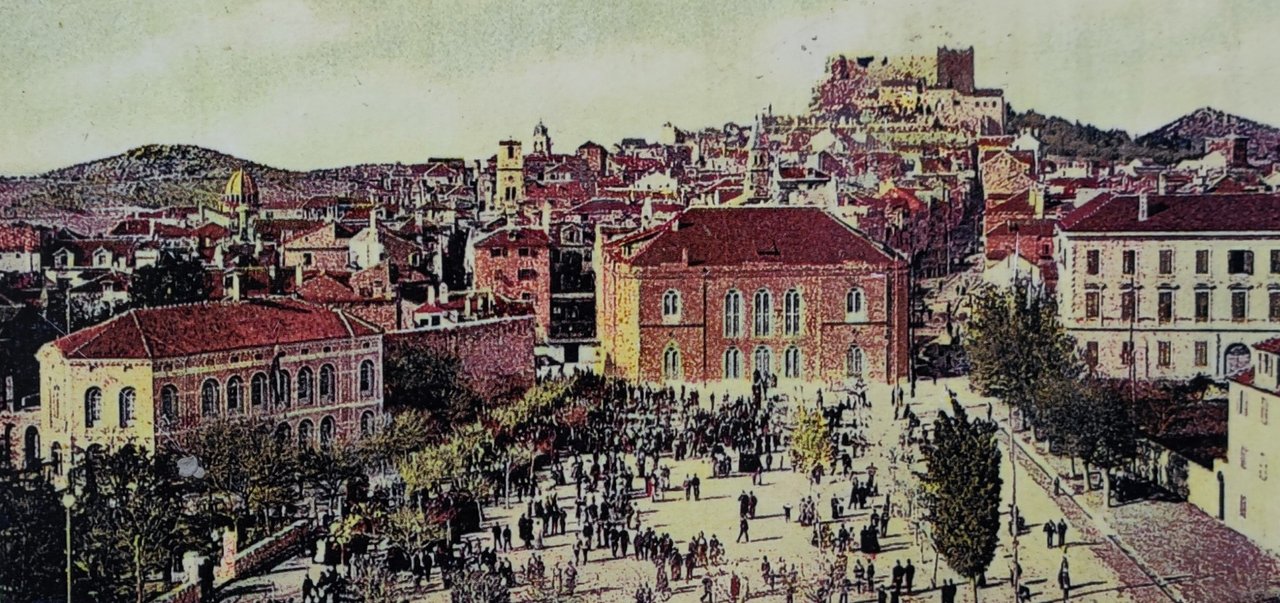 Sibenik was the first city powered by water energy worldwide
Sibenik was the first city powered by water energy worldwide
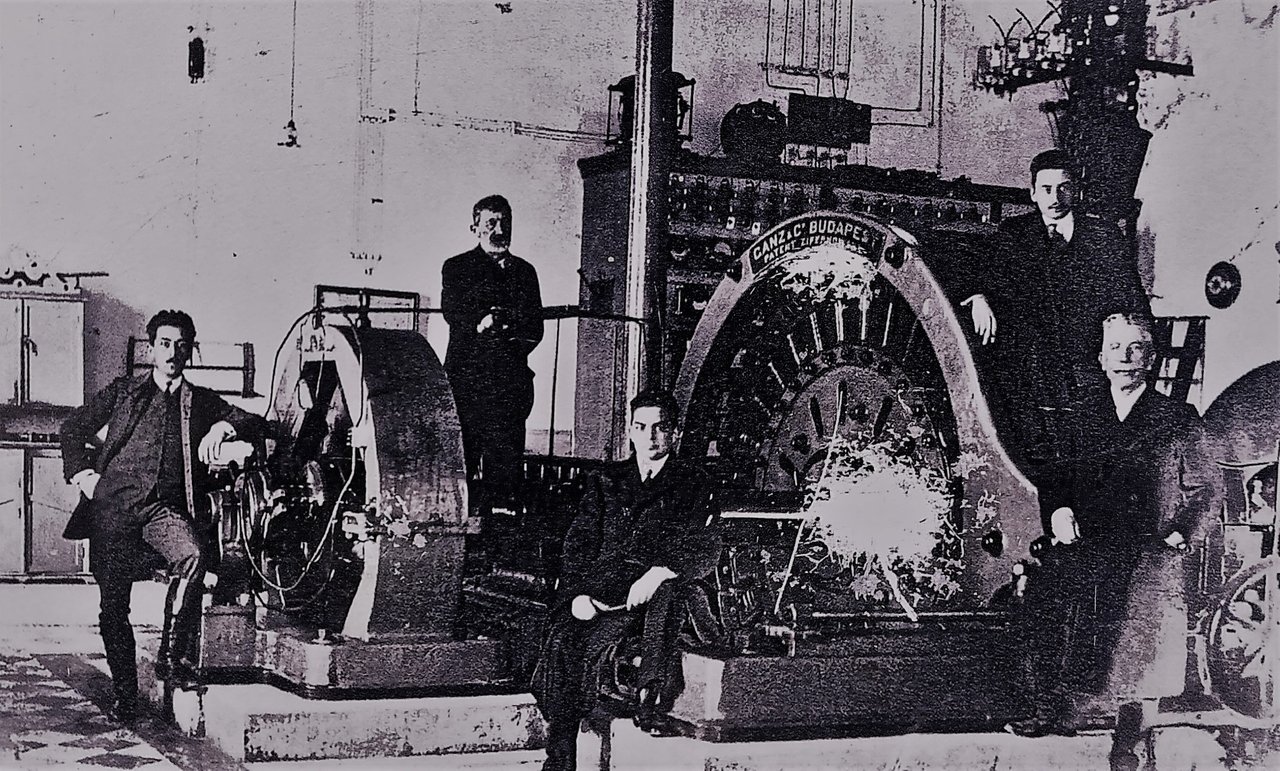 Treu heroes
Treu heroes


